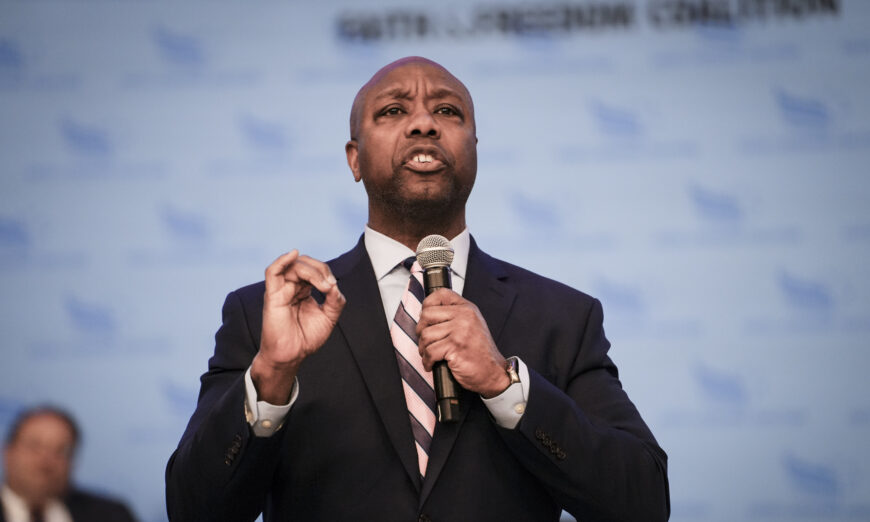Sen. Warren Blasts ‘Extremist’ Republicans for Risking Economic Disaster Over Debt Ceiling
“Extremist” Republicans have made a conscious effort to get Americans to agree to massive reductions in federal spending. This will cause major harm to the middle class. “to wreck the Biden economy,” Sen. Elizabeth Warren (D-Mass.) On March 7, Sen. Elizabeth Warren (D.Mass.
These remarks were the first salvo of a hearing that was held by a committee to examine the economic consequences of the U.S. debt limit being breached. In the end, both sides presented opposing ideas on how to control the economy and keep American jobs.
Warren and other invited witnesses who appeared before the Senate Committee on Banking, Housing, and Urban Affairs denounced any delay in lifting the $31.4 trillion national debt ceiling. They said it was irresponsible and nearly certain to cause financial damage.
If not for the debt ceiling, it would have been broken on January 19. “extraordinary measures” The U.S. Treasury has taken the necessary measures to prevent it. Republicans demand spending reductions in exchange for increasing the debt ceiling.
The President Joe Biden stated that he would not enter into negotiations over this matter as failure to do so could put all faith and credit in the United States at stake.
Ranking Member John Kennedy (R-La.) John Kennedy (R-La.) argued that while there won’t be default on federal debt, the Republican viewpoint is that nearing the debt limit will allow us to look at the nation’s spending habits as well as the effects of increasing debt.
Rock and a Hard Place
Warren declared in her opening remarks that House Republicans are putting American workers in a difficult spot.
“Now here’s the rock. They will raise the debt ceiling, and if they don’t, House Republicans will plunge the U.S. economy into a recession and cost at least 1 million Americans their jobs,” Warren said.
“And here’s the hard place. If they raise the debt ceiling but only in return for sharp spending cuts, that will also trigger a recession and push 2.6 million Americans out of work.”
Chief economist at Moody’s Analytics Mark Zandi testified that if the Federal Budget was to be balanced in 10 years, without increasing taxes, cutting Social Security or Medicare spending or raising taxes, then deep cuts would have to be made in all federal programs.
“It’s $16 trillion in cumulative cuts over the 10-year period. So just divide by 10. That’s $1.6 trillion per annum,” Zandi said.
To achieve this goal, it would be necessary “effectively eliminating all non-defense discretionary spending,” Zandi explained that these include housing inspection, food inspector, transportation spending and overseas aid.
Comparison of Fiscal and Monetary Policy
Kennedy tried to paint the Republican desire for spending cuts in a need to preserve jobs through exercising congressional authority over fiscal policy.
“It is unthinkable to me that the United States Congress will not extend the debt ceiling,” Kennedy said.
“There’s a moral principle involved and a practical principle. If you’re going to have a party, you’ve got to pay the band. And it’s time for us to pay the band and we’re going to do it.”
Kennedy did not say that spending discussions are a refusal of paying the country’s bills. It is a discussion about how to address inflation responsible.
Federal Reserve Board tried to achieve that goal by increasing interest rates. Kennedy stated that the only way you can measure its impact is increased unemployment.
“[Fed] Chairman Powell, acting on his own, just using monetary policy, will have to raise rates to 10.6 percent, and that’s going to put a lot of people out of work,” Kennedy said.
Kennedy suggests that a better strategy is to reduce inflation through fiscal policy. This means controlling federal spending.
“If we can slow the rate of growth in spending and debt accumulation to stimulate the economy less, that’s gonna save a lot of people’s jobs,” He stated.
Zandi reports that Congress has until August 19 to decide on a spending plan or raise the debt limit.
He determined that the X date at which the country will reach its debt limit again, without any other workarounds.
…..
Continue reading more Sen. Warren Blasts ‘Extremist’ Republicans for Risking Economic Disaster Over Debt Ceiling“
“The views and opinions expressed here are solely those of the author of the article and not necessarily shared or endorsed by Conservative News Daily”
" Conservative News Daily does not always share or support the views and opinions expressed here; they are just those of the writer."



